Here’s a 48-minute presentation on the Canon of Scripture. The short story is that the Protestants did not just decide to throw out seven books of the Bible. use of the protocanon (the shorter version of the canon) is as old as the Christian faith itself!
Tag: catholicism Page 1 of 2
One thing I’ll be doing sometimes over at the YouTube channel is taking blog posts and turning them into video presentations. Some recent comments by Cameron Bertuzzi of Capturing Christianity prompted me to do this with my article on the Church Fathers on the Eucharist. A lot of anti-apologist apologists quote the Church Fathers when they said that the bread and wine of the Eucharist are the body and blood of Christ, as though it proves that they believed in transubstantiation. It doesn’t!
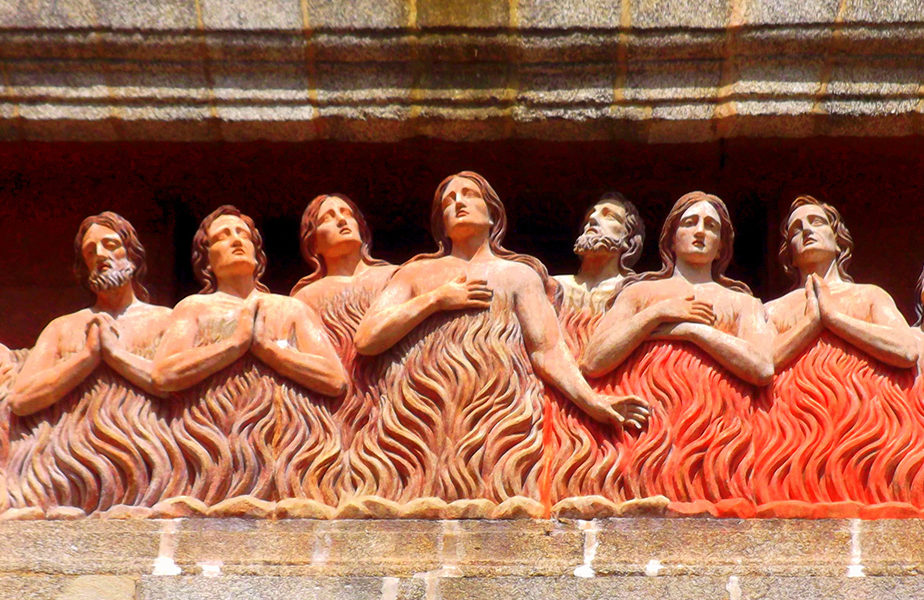
I’ve started listing to Pints with Aquinas very recently. So recently that I only just listened to episode four today. But you’ve had a few too many pints with Aquinas if you think the host’s argument for purgatory is a good one.
The podcast is well made and easy to listen to, and Matt Fradd presents it well. His dedication not only to his audience but to Christ is evident, and his passion is contagious. But I don’t know how long I’ll be listening. Time will tell. In today’s episode (ie the one I listened to today), I rolled my eyes as Matt repeated as fact the chestnut that all of the books used in the Catholic Bible were accepted by Christians until the Reformation, when Protestants started throwing out books that contradicted their theology. Nobody faithfully representing history in an informed manner would say this, as I’ve shown in the past. Is the podcast going to turn out to just be another bad Catholic apologetics ministry? I hope not. As I said, time will tell. The podcast might turn out to be my all-time favourite!

You can only believe in purgatory if you hold a substance dualist view of human beings.
Purgatory is a place that exists according to Roman Catholic Theology, and a number of people who are not Roman Catholic believe in it, too. In Catholic theology, it is a place where you go after death if you are not yet ready for heaven, so that you can receive punishments for the venial sins (the less serious sins, as opposed to mortal sins) that have not yet been dealt with in this life. As Thomas Aquinas put it,
[I]f the debt of punishment is not paid in full after the stain of sin has been washed away by contrition, nor again are venial sins always removed when mortal sins are remitted, and if justice demands that sin be set in order by due punishment, it follows that one who after contrition for his fault and after being absolved, dies before making due satisfaction, is punished after this life. Wherefore those who deny Purgatory speak against the justice of God: for which reason such a statement is erroneous and contrary to faith.
Outside of this historical Catholic understanding of purgatory, others have suggested, not that people need to be punished, but rather that they simply need to be fully sanctified (made holy) before reaching their final state in heaven. Jerry Walls defends this view in his book Purgatory: The Logic of Total Transformation. In public conversations, Dr Walls has remarked that while no doubt the sinful human desire is to have total transformation all at once, the reality is that sanctification is a process that takes time, hence purgatory.
I do not believe in purgatory, but I will not here argue that purgatory does not exist. Instead, I will just make one observation: To believe in purgatory presupposes mind-body substance dualism.

Calvin did not accept the Marian doctrines. Without wanting to sound too rancorous, I have to say that anti-Protestant polemics can be the worst.
I’m sorry. I know that’s a very one-sided thing to say, but I encounter anti-Protestant polemics more than anti-Catholic polemics, because I’m not Roman Catholic. Sometimes the phenomenon goes by the name “Catholic apologetics,” as though it’s really a pro-Catholic thing, but that’s not how some of these warriors-for-Rome present themselves. They’re about claiming scalps in arguments.
I love some Catholic theologians and philosophers – and Catholic people in general. So I’m not going to refer to these people as just “Catholic scholars.” It would be unfair to Catholic scholars in general to lump them all together, which is why I keep open a category for anti-Protestant polemics, separate from Catholic scholarship. It’s a let-down for me, because some of the finest work in philosophical theology today has been produced by Roman Catholic Scholars (think Brian Leftow, Brian Davies, Edward Feser – EDIT: My mistake, Brian Leftow is not Catholic. He’s Anglican. But he sure writes like the best Catholic philosophers), so to turn from such fine minds and work to online blunt-axe-swinging warriors is a bit like swallowing the cheapest bourbon and cola money can buy after sampling a fine port.
That somewhat frustrated preamble aside, here’s what moved me to write this post. The other day I saw yet another anti-Protestant polemicist make the familiar claim: “Most Protestants would be surprised to learn that all the early Reformers accepted the Marian doctrines.” That’s not a direct quote, but it’s close (the part about all the early Reformers was central to the claim), and I’ve seen the claim made numerous times.
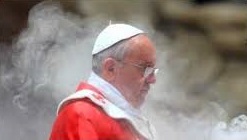
Based on the evidence currently available, we should view Pope Francis as an annihilationist, and attempts from within the Vatican to downplay this fact are unconvincing. The current Pope does not believe the doctrine of eternal torment, affirming instead the biblical doctrine of conditional immortality: That the saved will have eternal life, but the lost will not live forever – not in hell or anywhere else.
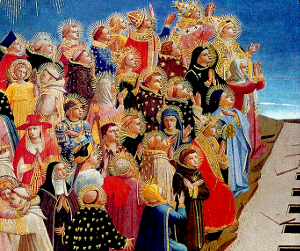
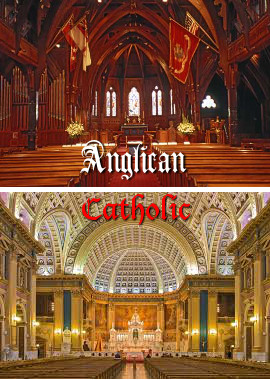
No, Anglicans are not basically Catholics. So what’s the difference?
Some time ago when I publicly commented that I could easily consider “going Anglican,” one of the comments I got was from a Catholic, telling me that I would have come “half-way home.” Since then as many of you know, I have gone Anglican and when I have told people about it, I’ve heard remarks suggesting that some people really aren’t sure if there’s a difference between Catholics and Anglicans. I’ve had people ask me things like: Don’t Anglicans venerate statues of Mary? Don’t they have confessionals? Don’t they believe in Purgatory? The answer to these questions is no, but I know that there are people out there asking these and similar questions.
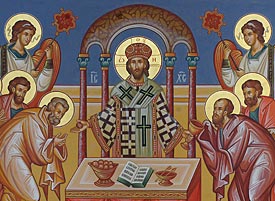
I’ve gotten tired of apologetics efforts against Protestants that offer “A million bazillion scattered quotes from the Church Fathers that clearly, obviously prove that they thought X.” Proof-text warfare is easy, but generally worthless, and the straw that broke the camel’s back for me was the issue of what the Fathers believed about the celebration of the Lord’s Supper. No more, please. That is not a respectful way to treat the Fathers on this or any subject.

Please stop saying that Protestants engaged in a novelty by tossing out seven books of the Bible that until then Christians had always treated as part of it. That is neither true nor fair.
Recently a friend of mine posed the question of whether or not it might be acceptable for any reason to add to the sixty-six books of the Bible. As you will likely be aware, the canon (i.e. the list of books that belong to the Bible) used by Protestants contains sixty-six books, but the canon used by Catholics contains seventy-three books. It didn’t take long for a Catholic friend of my friend to arrive on the scene and to reject the presupposition that the Bible contains sixty-six books:
